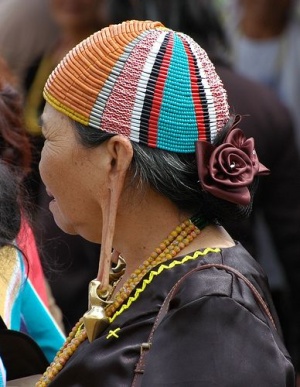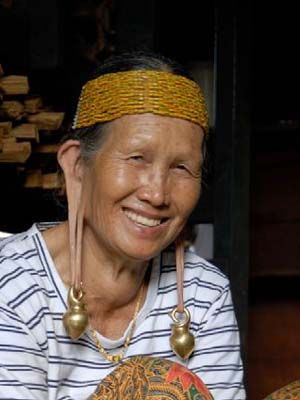Difference between revisions of "Peta"
Jump to navigation
Jump to search
| Line 1: | Line 1: | ||
[[image:Tree22 peta.jpg|thumb|Lady in her '''Peta Ba'o Rawir'''<br>Photo by [http://www.flickr.com/photos/tree22-fting/ Freddie Ting]<br>© All rights reserved. ]] | [[image:Tree22 peta.jpg|thumb|Lady in her '''Peta Ba'o Rawir'''<br>Photo by [http://www.flickr.com/photos/tree22-fting/ Freddie Ting]<br>© All rights reserved. ]] | ||
| − | [[image:Q149899 peta1.jpg|thumb|Lady in her '''Peta Ba'o'''<br>Photo by [http://www.flickr.com/photos/jonandastrid/ | + | [[image:Q149899 peta1.jpg|thumb|Lady in her '''Peta Ba'o'''<br>Photo by [http://www.flickr.com/photos/jonandastrid/ Jon Townend]<br>© All rights reserved. ]] |
Revision as of 23:29, 15 November 2007
Translations
- English
- a beaded cap
- Bahasa Malaysia
- topi manik
Description
- Peta Ba'o Rawir
- The front of the peta (pata) is made of ba'o rawir (burnt orange coloured drinking straw beads) and edged with two rows of ba'o alai ma'un (yellow peanut beads). The sides of the peta is made with a panel of ba'o sia' (??), edged with ba'o semera' and a panel of ba'o bata' flanged by white, black and red drinking straw beads. The ba'o sia' panel is repeated in the back.
- A cap with new beads costs between RM800 and RM1,000, while an antique one is valued at about RM30,000. (1)
- Peta Ba'o
- ?
References
- A tale of beads [1]
- Beads of Borneo - Heidi Munan

